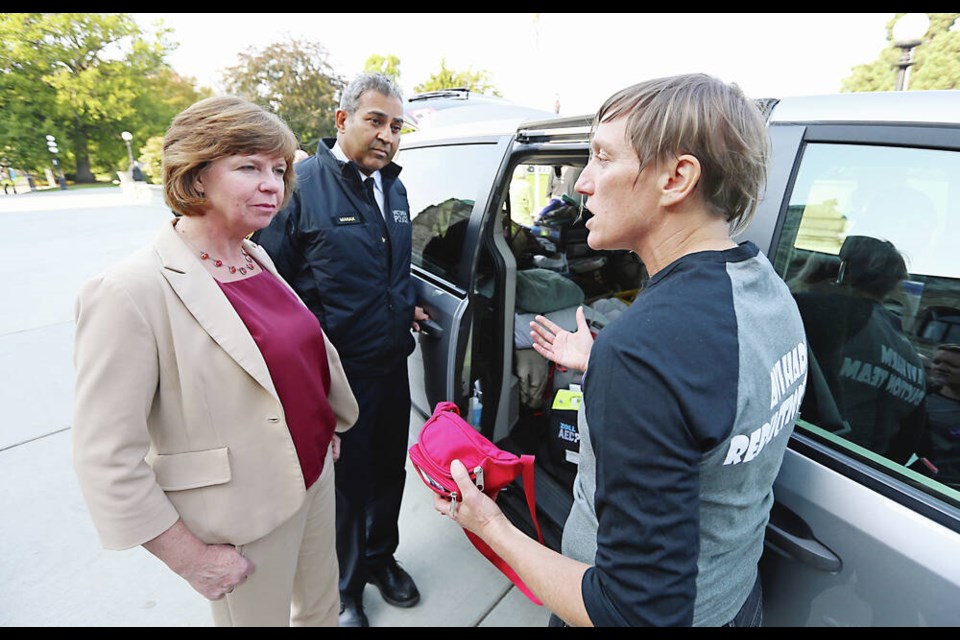A downtown business owner sees someone sitting on the sidewalk outside their storefront, holding their knees to their chest, tears streaming down their face. When they try to help, the person becomes scared or angry, shouting at them to “go away.”
The shopkeeper doesn’t know who to call. A crime isn’t being committed, but this person is having a crisis.
It’s one of many scenarios in which members of the community could call the city’s new mental-health crisis team, which would send a mental-health worker and peer-support worker to provide care for the person in crisis.
On Thursday, AVI Victoria was announced as the service provider for the city’s new team, known as PACT for peer assisted care team. The harm-reduction organization is one of the province’s first PACT providers, alongside the Purpose Society, which runs a similar team in New Westminster.
Funded by the province, the teams were developed by the B.C. division of the Canadian Mental Health Association and are the first of their kind in B.C., pitched as an answer to complex mental health-related crises currently handled, for the most part, by police and hospital emergency departments.
“This team is envisioned as not needing police involvement,” said Katrina Jenson, executive director at AVI. “It’s actually trying to sort of reduce the need for police involvement and that’s a really important aspect of our work.”
A PACT operation has been running on Vancouver’s North Shore for about a year, and according to the Canadian Mental Health Association, has responded to about 500 calls — the vast majority of which did not require police involvement.
AVI is in the process of staffing up and finalizing operating agreements, Jensen said, adding the agency is hopeful the program will be running early in the new year.
Once it launches, anyone will be able to phone or text the mobile crisis team. The situation will be assessed and, if deemed safe, PACT will go to the person in need and assess the best course of action, which could be anything from listening to connecting the person to appropriate resources, health care or harm reduction.
“It takes people a while to trust that they’re going to be treated in a non-judgmental way that honours them and meets them where they’re at,” said Jessica Murray, manager of harm-reduction services for AVI. “A lot of the services we provide currently are already doing a lot of on-the-ground crisis response with folks.
“So we’re going to be able to build off those relationships we already have built in community and some of those skills we already have on our team.”
The team will not be called to incidents that involve weapons, said Jonny Morris, CEO of the Canadian Mental Health Association, B.C. division. But there will be room for adaptation depending on the situation.
“There’s actually quite a strict and robust criteria they will use to go out to calls,” Morris said. “They’ll go, for example, if there are threats of violence, but no weapon present. If there’s a firearm present, there’s no way PACT would go alone.”
Morris said a robust training program has been developed for new team members, some of whom already worked at AVI and others who have yet to be hired.
PACT isn’t the first mental-health team in Victoria — Island Health’s Assertive Community Treatment team focuses on long-term mental-health recovery.
But PACT is geared specifically for a crisis, Morris said, though it can refer to the Island Health team or other longer-term resources and service providers as needed.
“What we’ve done is added to the civilian end of the toolbox,” Morris said.
ngrossman@timescolonist.com
>>> To comment on this article, write a letter to the editor: letters@timescolonist.com



